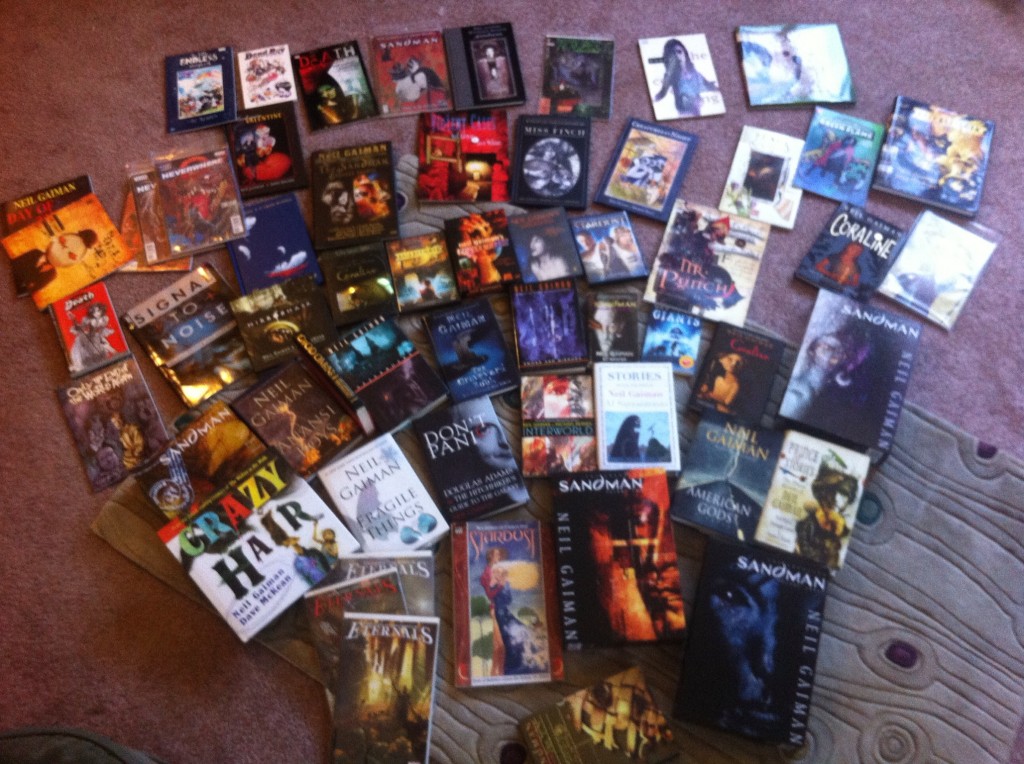A few months ago I ran across a tongue in cheek quiz called the fantasy novelist exam. It posed a series of questions about fantasy novels. If you pass the quiz, your novel is original and could be worthy of publication. If you fail you’re SOL, and should consider a new career. My novel failed. Other novels that would failed are: Harry Potter, the Song of Ice and Fire series, American Gods, and every other fantasy novel I can think of. (Answering yes to any one of the over 70 questions means you fail.)
I really like this quiz. (
which can be found here.) As I said, it’s obviously not to be taken one hundred percent seriously, but it is good at pointing out tropes that have become cliches. If you do end up answering yes to the majority of the questions, it might be worth taking another look at your work.
I’m posting my results here. Anything in bold is copied from the website and belongs to rinkworks.com. My answers are in plain text.
The fantasy novelist’s exam
By David J. Parker
Additional Material By Samuel Stoddard
Ever since J.R.R. Tolkien and C.S. Lewis created the worlds of Middle Earth and Narnia, it seems like every windbag off the street thinks he can write great, original fantasy, too. The problem is that most of this “great, original fantasy” is actually poor, derivative fantasy. Frankly, we’re sick of it, so we’ve compiled a list of rip-off tip-offs in the form of an exam. We think anybody considering writing a fantasy novel should be required to take this exam first. Answering “yes” to any one question results in failure and means that the prospective novel should be abandoned at once.
1. Does nothing happen in the first fifty pages?
Nope. Stuff happens.
2. Is your main character a young farmhand with mysterious parentage?
No.
3. Is your main character the heir to the throne but doesn’t know it?
No.
4. Is your story about a young character who comes of age, gains great power, and defeats the supreme badguy?
No, because she’s already of age. But otherwise yes.
5. Is your story about a quest for a magical artifact that will save the world?
Not really.
6. How about one that will destroy it?
Sort of, but no.
7. Does your story revolve around an ancient prophecy about “The One” who will save the world and everybody and all the forces of good?
Nuh uh
8. Does your novel contain a character whose sole purpose is to show up at random plot points and dispense information?
Nope, but there is a character that shows up at random moments to hit on the heroine.
9. Does your novel contain a character that is really a god in disguise?
No.
10. Is the evil supreme badguy secretly the father of your main character?
No.
11. Is the king of your world a kindly king duped by an evil magician?
No, there is no king.
12. Does “a forgetful wizard” describe any of the characters in your novel?
No, but if you remove the forgetful bit, yes.
13. How about “a powerful but slow and kind-hearted warrior”?
No.
14. How about “a wise, mystical sage who refuses to give away plot details for his own personal, mysterious reasons”?
No, there is a character that refuses to give away information for personal and mysterious reasons, but he’s not a wise mystical sage, and the info isn’t that important to the plot.
15. Do the female characters in your novel spend a lot of time worrying about how they look, especially when the male main character is around?
No.
16. Do any of your female characters exist solely to be captured and rescued?
No
17. Do any of your female characters exist solely to embody feminist ideals?
No.
18. Would “a clumsy cooking wench more comfortable with a frying pan than a sword” aptly describe any of your female characters?
The main character is a pastry chef from our world, who’s never handled a sword in her life, so technically I suppose yes. Though she does turn out to be a bit of a badass.
19. Would “a fearless warrioress more comfortable with a sword than a frying pan” aptly describe any of your female characters?
No, none of my characters regardless of gender are fearless, though they occasionally act it.
20. Is any character in your novel best described as “a dour dwarf”?
No.
21. How about “a half-elf torn between his human and elven heritage”?
No, there’s an elf, but he’s happy in his elfness.
22. Did you make the elves and the dwarves great friends, just to be different?
Dwarves get mentioned but don’t appear in the book, and the sole elf wouldn’t care about dwarfs unless they were attractive and female.
23. Does everybody under four feet tall exist solely for comic relief?
No, I think all the characters are over four feet.
24. Do you think that the only two uses for ships are fishing and piracy?
No boats.
25. Do you not know when the hay baler was invented?
No, I don’t. Is that important?
26. Did you draw a map for your novel which includes places named things like “The Blasted Lands” or “The Forest of Fear” or “The Desert of Desolation” or absolutely anything “of Doom”?
No, I didn’t draw a map. There is an agony swamp mentioned in passing, but it’s sort of a joke.
27. Does your novel contain a prologue that is impossible to understand until you’ve read the entire book, if even then?
No prologue.
28. Is this the first book in a planned trilogy?
No
29. How about a quintet or a decalogue?
No
30. Is your novel thicker than a New York City phone book?
No.
31. Did absolutely nothing happen in the previous book you wrote, yet you figure you’re still many sequels away from finishing your “story”?
No, it’s a stand alone.
32. Are you writing prequels to your as-yet-unfinished series of books?
Nope.
33. Is your name Robert Jordan and you lied like a dog to get this far?
No.
34. Is your novel based on the adventures of your role-playing group?
No, I’m not in a role playing group.
35. Does your novel contain characters transported from the real world to a fantasy realm?
Yes!
36. Do any of your main characters have apostrophes or dashes in their names?
No
37. Do any of your main characters have names longer than three syllables?
No.
38. Do you see nothing wrong with having two characters from the same small isolated village being named “Tim Umber” and “Belthusalanthalus al’Grinsok”?
No.
39. Does your novel contain orcs, elves, dwarves, or halflings?
Yes to elves. Dwarves are mentioned but don’t appear. No orcs or halflings.
40. How about “orken” or “dwerrows”?
No, is that a thing?
41. Do you have a race prefixed by “half-“?
No.
42. At any point in your novel, do the main characters take a shortcut through ancient dwarven mines?
No.
43. Do you write your battle scenes by playing them out in your favorite RPG?
No.
Have you done up game statistics for all of your main characters in your favorite RPG?
No.
44. Are you writing a work-for-hire for Wizards of the Coast?
No, but I probably would if they asked.
45. Do inns in your book exist solely so your main characters can have brawls?
No inns.
46. Do you think you know how feudalism worked but really don’t?
Probably.
47. Do your characters spend an inordinate amount of time journeying from place to place?
Yep.
48. Could one of your main characters tell the other characters something that would really help them in their quest but refuses to do so just so it won’t break the plot?
No, they share what information they have when they have it.
49. Do any of the magic users in your novel cast spells easily identifiable as “fireball” or “lightning bolt”?
Yes.
50. Do you ever use the term “mana” in your novel?
No, should I?
51. Do you ever use the term “plate mail” in your novel?
Nope, but there is some chain mail.
52. Heaven help you, do you ever use the term “hit points” in your novel?
What the what? Is that a gaming term?
53. Do you not realize how much gold actually weighs?
Uh, can’t say that I do. Don’t have anyone toting it around either, so not too concerned.
54. Do you think horses can gallop all day long without rest?
No, that’s why they fly, duh. (there are no flying horses in my books, but maybe there should be.
55. Does anybody in your novel fight for two hours straight in full plate armor, then ride a horse for four hours, then delicately make love to a willing barmaid all in the same day?
No.
56. Does your main character have a magic axe, hammer, spear, or other weapon that returns to him when he throws it?
No, but that would be cool.
57. Does anybody in your novel ever stab anybody with a scimitar?
No, but also cool.
58. Does anybody in your novel stab anybody straight through plate armor?
No
59. Do you think swords weigh ten pounds or more?
That sounds impractical.
60. Does your hero fall in love with an unattainable woman, whom he later attains?
No she doesn’t.
61. Does a large portion of the humor in your novel consist of puns?
No.
62. Is your hero able to withstand multiple blows from the fantasy equivalent of a ten pound sledge but is still threatened by a small woman with a dagger?
No, that would really hurt.
63. Do you really think it frequently takes more than one arrow in the chest to kill a man?
Not especially, but sometimes you want to extra kill a guy extra hard.
64. Do you not realize it takes hours to make a good stew, making it a poor choice for an “on the road” meal?
I do realize that, does that make this a yes answer? Is that cheating?
65. Do you have nomadic barbarians living on the tundra and consuming barrels and barrels of mead?
No, but it sounds like fun weekend.
66. Do you think that “mead” is just a fancy name for “beer”?
Kinda, I don’t drink much. Mead is yummier than beer right?
67. Does your story involve a number of different races, each of which has exactly one country, one ruler, and one religion?
No.
68. Is the best organized and most numerous group of people in your world the thieves’ guild?
No.
69. Does your main villain punish insignificant mistakes with death?
No, but she might if she’s in the right mood.
70. Is your story about a crack team of warriors that take along a bard who is useless in a fight, though he plays a mean lute?
No.
71. Is “common” the official language of your world?
No.
72. Is the countryside in your novel littered with tombs and gravesites filled with ancient magical loot that nobody thought to steal centuries before?
No.
73. Is your book basically a rip-off of The Lord of the Rings?
No, it’s a rip off of the Wizard of Oz, Harry Potter, and a bunch of fairy tales.
74. Read that question again and answer truthfully.
Okay there is a character that wears a gold ring on a chain around her neck and it’s an important plot point, but that was an intentional homa—yes, sigh.
6 yes out of 74. As far as failure goes, it could be worse.



